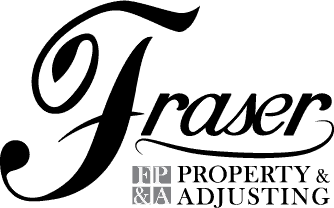How to Understand Your Fire Damage Insurance Policy and What It Covers
As a homeowner, it is crucial to understand the specifics of your fire insurance policy and what it covers in the event of a fire. Fire damage can be devastating, and having the right insurance coverage can provide the financial support needed to recover and rebuild. This article will explore everything you need about fire insurance types and coverage, from understanding the different types of fire insurance policies available to deciphering the coverage limits and exclusions. We will equip you with the knowledge to navigate your fire insurance policy effectively. Don’t let the complexities of insurance leave you in the dark during a crisis. Read on for clarity and peace of mind regarding your fire insurance coverage. Is fire insurance part of homeowners insurance?
Is fire insurance part of homeowners insurance?
Yes, standard Insurance Policies include fire insurance coverage as part of homeowners insurance coverage. Homeowners insurance is a comprehensive policy that protects your home and its contents against various perils, including fire. Review your policy. Check for explicit fire insurance coverage. Understand the terms and conditions. It’s essential. Protect your home and belongings with fire insurance. It covers repairs or rebuilding after a fire and replaces damaged personal items. Consult your insurance provider to understand your coverage and explore additional options for enhanced protection.
What does fire insurance cover?
Fire insurance typically covers damage caused by fire to your home and personal belongings, including the structure of your house, such as the walls, roof, foundation, and any attached structures like a garage or shed. It also covers your personal property, including furniture, appliances, clothing, and electronics. In addition to these physical damages, fire insurance typically provides Additional Living Expenses, which cover living costs from your home due to fire damage, including hotel accommodations, meals, and other necessary expenses. Reviewing your policy carefully to understand the specific coverage limits and any exclusions that may apply is essential. Suppose you have any questions or need assistance. Consult a professional public adjuster specializing in fire insurance claims to ensure you receive the total compensation you are entitled to.
What does fire insurance not cover?
While fire insurance provides valuable coverage for homeowners, it’s essential to understand what it doesn’t cover. Fire insurance policies typically do not cover damage caused by intentional acts, arson, or fires started by the homeowner. Additionally, certain property types, such as detached structures like sheds or garages, may not be covered unless specified in the policy. It’s also worth noting that fire insurance may not cover damage caused by other perils, such as floods or earthquakes. To ensure comprehensive coverage, homeowners should review their policies carefully and consider additional insurance options if necessary.
Conclusion
Understanding your fire damage insurance policy is crucial. It ensures you have the right coverage if a fire occurs. Know the types of fire insurance available and the specific coverage provided. Make informed decisions to protect your home and belongings.
To learn more about fire insurance types and coverage, we recommend contacting our team at Fraser Property & Adjusting. Our experienced public adjusters in Florida are here to guide you through the process, answer any questions, and help you navigate your fire insurance policy effectively.
Please don’t wait until it’s too late. Take action now to review your fire insurance policy and ensure you have the right coverage. Your home and peace of mind are worth it. Contact Fraser Property & Adjusting today to schedule a consultation and protect what matters most.


